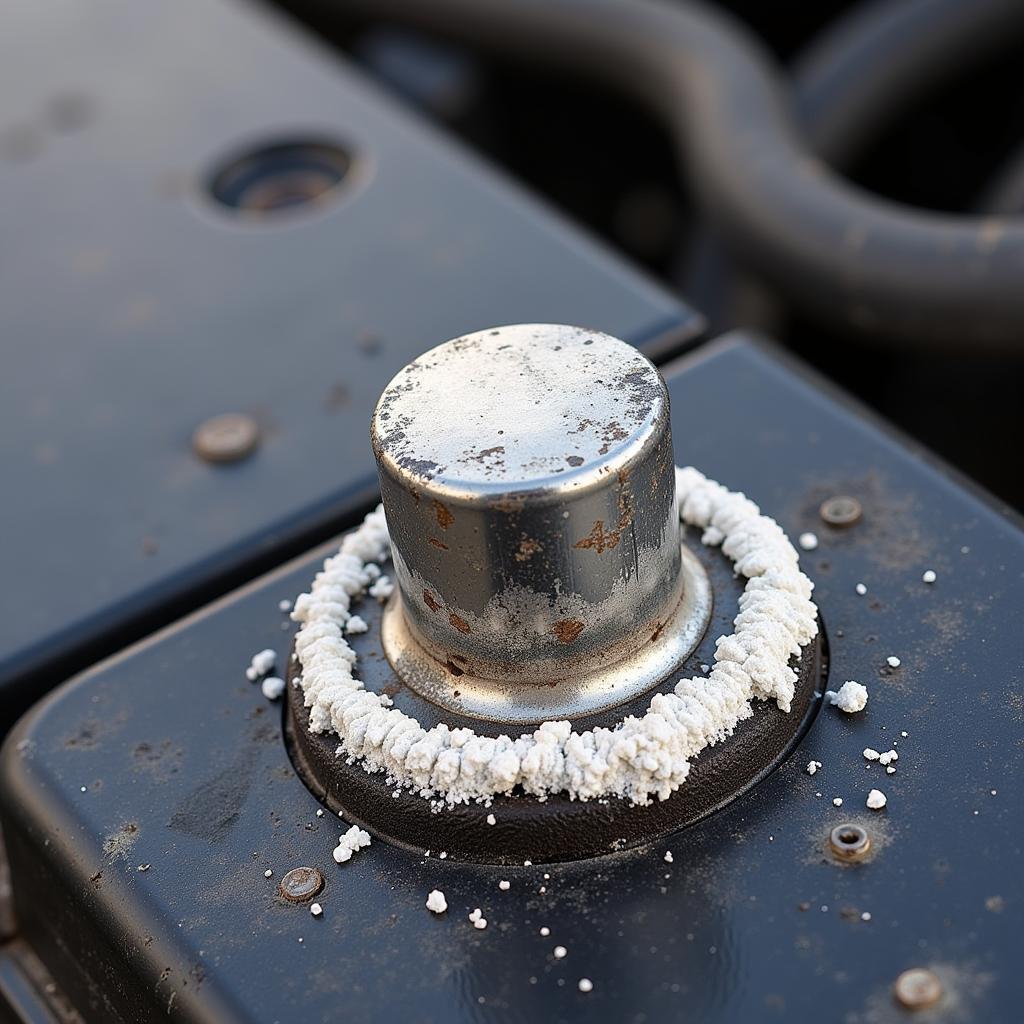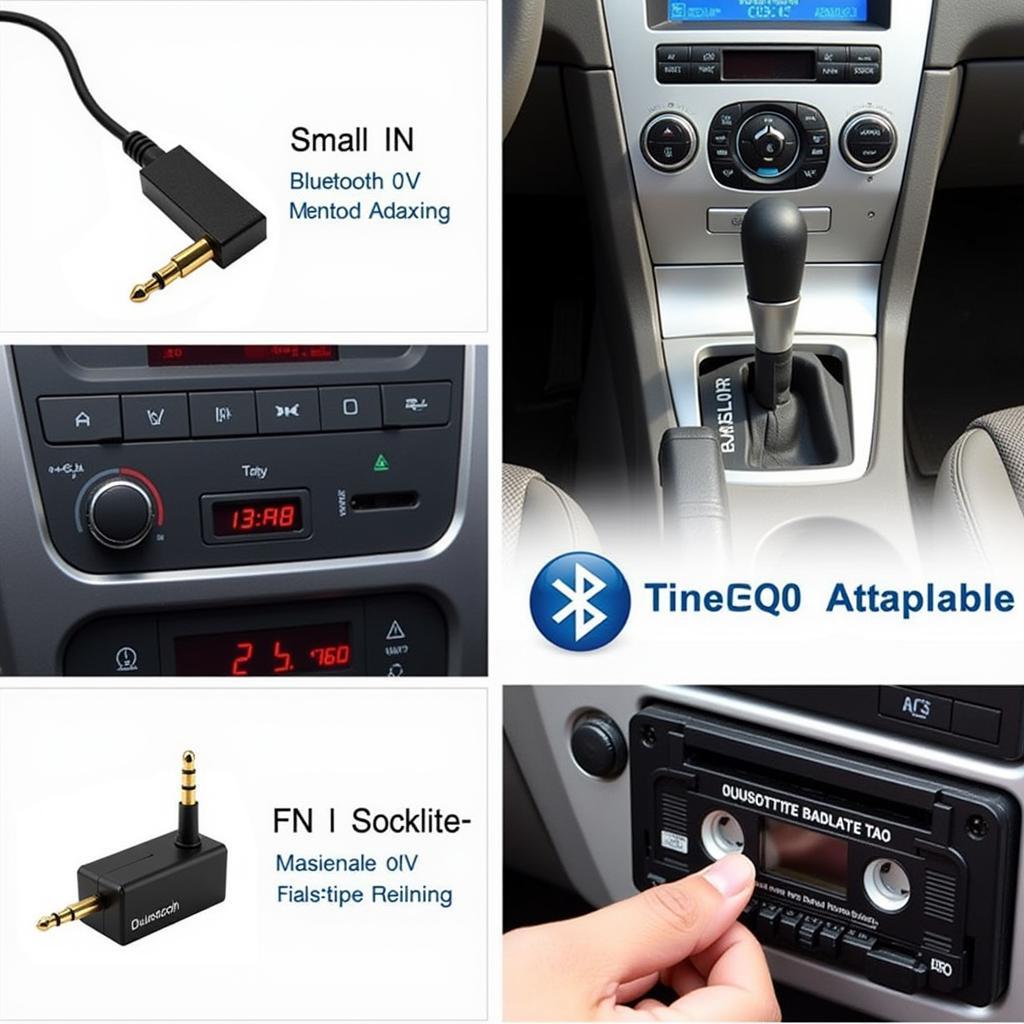Is your car battery constantly draining, leaving you stranded and frustrated? A “battery keeps losing charge” issue is a common automotive problem, and understanding the underlying causes is crucial for effective troubleshooting. This guide dives deep into the various reasons why your battery might be losing its charge, offering practical solutions and expert advice to help you get back on the road.
Why Does My Battery Keep Losing Charge?
There are numerous reasons why a car battery keeps dying. Some are simple fixes, while others require professional diagnosis and repair. Understanding these potential culprits can save you time and money in the long run.
Common Culprits Behind a Draining Battery
- Parasitic Drain: Even when your car is off, certain electrical components can continue to draw power, slowly draining the battery. This “parasitic drain” can be caused by faulty wiring, malfunctioning components like interior lights or radios, or even aftermarket accessories.
- Failing Alternator: The alternator is responsible for recharging the battery while the engine is running. A failing alternator won’t adequately recharge the battery, leading to a gradual loss of charge and eventual failure.
- Old or Damaged Battery: Batteries have a limited lifespan, typically 3-5 years. Over time, the battery’s ability to hold a charge diminishes. Physical damage or extreme temperatures can also shorten a battery’s life.
- Corroded Battery Terminals: Corrosion on the battery terminals can disrupt the flow of electricity, preventing the alternator from properly charging the battery and hindering the battery’s ability to power the vehicle.
- Driving Habits: Short trips, especially in cold weather, don’t give the alternator enough time to fully recharge the battery after starting the engine, contributing to a gradual discharge.
- Extreme Temperatures: Both extreme heat and cold can affect battery performance. Heat can accelerate the chemical reactions within the battery, shortening its life. Cold temperatures can reduce the battery’s capacity to hold a charge.
 Corroded Car Battery Terminals
Corroded Car Battery Terminals
How to Troubleshoot a Car Battery That Keeps Losing Charge
Addressing a “battery keeps losing charge” issue requires systematic troubleshooting. Here’s a step-by-step guide:
- Inspect the Battery Terminals: Check for corrosion. If present, clean the terminals with a baking soda and water solution and a wire brush.
- Test the Battery: Use a multimeter to check the battery voltage. A fully charged battery should read around 12.6 volts.
- Test the Alternator: With the engine running, the voltage should be around 14 volts. A lower reading indicates a potential alternator problem.
- Check for Parasitic Drain: Use a multimeter to measure the current draw with the ignition off. A draw above 50 milliamps might indicate a parasitic drain.
Remote Diagnostics and Software Solutions
Modern vehicles are increasingly reliant on complex electronic systems. Remote diagnostics and software solutions can provide quick and accurate identification of battery drain issues, often pinpointing the exact faulty module or component. This eliminates guesswork and reduces diagnostic time. Remote software updates can sometimes even address underlying software issues contributing to battery drain without requiring a physical visit to a repair shop.
Expert Insights from John Miller, Automotive Electrical Engineer
“Remote diagnostics have revolutionized how we approach car battery issues. We can now identify and often resolve problems much faster, saving car owners time and money.”
Preventing Future Battery Drain
Proactive maintenance is key to preventing future battery drain:
- Regular Battery Testing: Have your battery tested at least twice a year, especially before the onset of extreme temperatures.
- Clean Battery Terminals: Keep the battery terminals clean and free of corrosion.
- Limit Short Trips: If possible, combine short trips into longer ones to allow the alternator sufficient time to recharge the battery.
- Turn Off Accessories: Ensure all lights, radio, and accessories are turned off when the car is parked.
- Consider a Battery Maintainer: If your vehicle is stored for extended periods, a battery maintainer can help prevent discharge.
Conclusion
Dealing with a car battery that keeps losing charge can be frustrating, but by understanding the potential causes and applying appropriate troubleshooting techniques, you can resolve the issue effectively. Utilizing remote diagnostics and software solutions can further streamline the process and ensure a quick return to the road. Don’t let a dead battery leave you stranded – take control of your car’s electrical health today!
FAQ
- How long does a car battery typically last? Most car batteries last between 3 and 5 years.
- Can a bad alternator drain my battery? Yes, a failing alternator won’t adequately recharge the battery, leading to a drain.
- How do I clean corroded battery terminals? Use a mixture of baking soda and water, along with a wire brush.
- What is a parasitic drain? A parasitic drain is a constant draw of power from the battery even when the car is off.
- How can I test my car battery? Use a multimeter to check the battery voltage.
- What is the ideal voltage for a fully charged car battery? Around 12.6 volts.
- How can remote diagnostics help with battery problems? Remote diagnostics can quickly and accurately identify the cause of battery drain, even pinpointing specific faulty components.


